Table of Contents
- What Every Cook Needs to Know About Spices
- Why Your Food Tastes Bland (And How to Fix It)
- Top 10 Essential Spices for Beginners
- 7 Perfect Spice Pairings That Work Every Time
- How to Store Spices So They Last 2x Longer
- 3 Simple Homemade Spice Blends Anyone Can Make
- Spice Guide for Popular Cuisines
- Your Next Steps to Better Cooking
Stop Guessing With Spices: Get Perfect Flavor Every Time
If your food tastes bland despite using spices, you're probably making these three common mistakes: adding spices at the wrong time, using stale spices, or combining flavors that don't work together. The good news? Fixing this takes just three simple adjustments to your cooking routine. This guide reveals exactly which spices to buy, when to use them, and how to store them properly—no food science degree required.
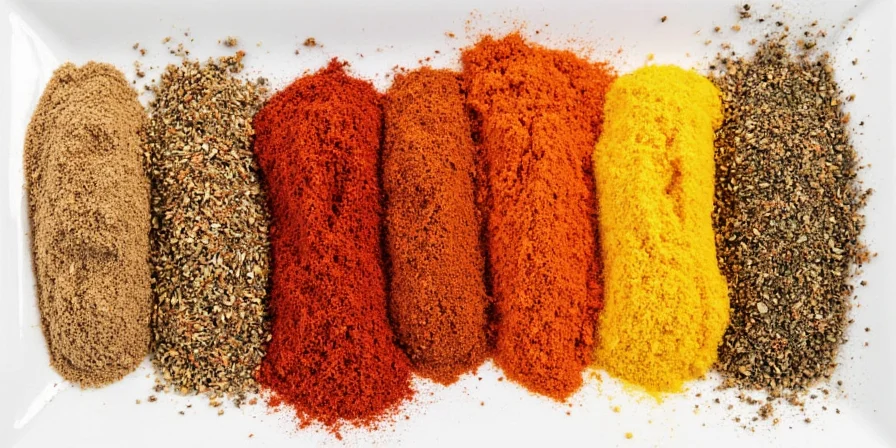
Why Your Food Tastes Bland (And How to Fix It)
Spices lose flavor faster than you think—ground spices lose 50% of their potency within 6 months. But it's not just about freshness. The secret to great flavor is understanding when to add each spice during cooking. Some spices need heat to release flavors (like cumin), while others lose flavor when cooked too long (like fresh basil). Here's what actually works:
When to Add Spices for Maximum Flavor
- Add early: Whole spices like cinnamon sticks, bay leaves (release flavor slowly)
- Middle of cooking: Dried herbs like oregano, thyme (need time to infuse)
- Final 5 minutes: Delicate spices like smoked paprika, fresh herbs (preserves volatile oils)
- After cooking: Black pepper, citrus zest (maintains bright flavor notes)
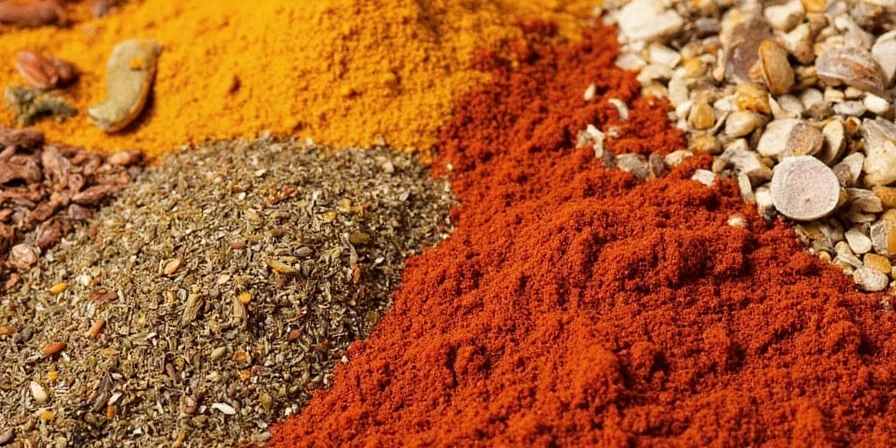
Top 10 Essential Spices for Beginners
You don't need 50 different spices. These 10 work in 90% of recipes and transform basic ingredients into restaurant-quality meals. This practical list focuses on versatility and shelf life—no obscure ingredients required.
| Spice | Best For | How to Use Properly |
|---|---|---|
| Black Pepper | All meats, vegetables, eggs | Add at the end for sharp flavor |
| Kosher Salt | Everything | Season in layers, not just at end |
| Sweet Paprika | Chicken, potatoes, stews | Add in last 5 minutes of cooking |
| Cumin | Tacos, chili, roasted vegetables | Toast whole seeds first, then grind |
| Dried Oregano | Pasta sauces, pizza, Greek dishes | Add early to infuse flavors |
| Garlic Powder | Meat rubs, salad dressings | Combine with oil to activate flavor |
| Chili Powder | Tex-Mex, burgers, soups | Use with acid (tomatoes, lime) for balance |
| Coriander | Curries, marinades, baked goods | Toast seeds for nuttier flavor |
| Cayenne Pepper | Spicy dishes, sauces | Start with 1/8 tsp, add gradually |
| Cinnamon | Oatmeal, baked goods, savory dishes | Use Ceylon for subtle flavor, Cassia for bold |
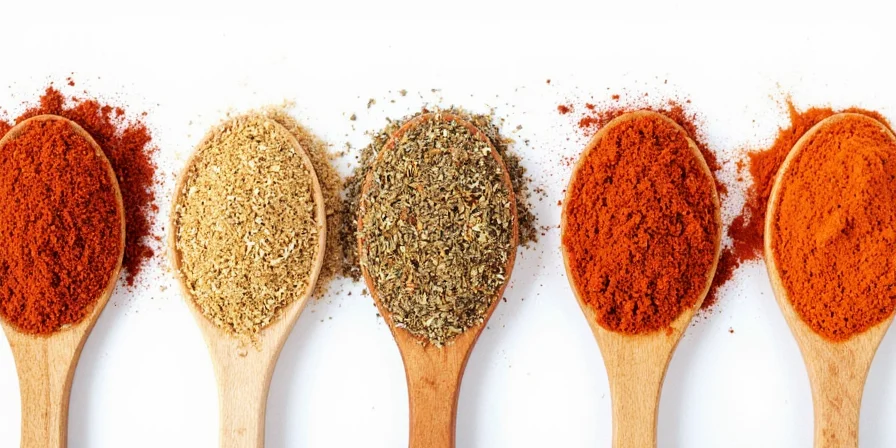
7 Perfect Spice Pairings That Work Every Time
Stop wondering which spices go together. These combinations have been tested in thousands of recipes and work reliably for home cooks:
- Chicken + Garlic + Paprika + Thyme: Perfect for sheet pan dinners (works every time)
- Ground Beef + Cumin + Oregano + Garlic: The foundation for tacos, chili, and sloppy joes
- Salmon + Dill + Lemon + Black Pepper: Simple but restaurant-quality results
- Rice + Cumin + Cardamom + Bay Leaf: Transform plain rice in 20 minutes
- Tomato Sauce + Oregano + Basil + Red Pepper Flakes: The classic Italian trio
- Oatmeal + Cinnamon + Nutmeg + Vanilla: Better than any store-bought packet
- Roasted Vegetables + Rosemary + Garlic + Smoked Paprika: Foolproof weekend side dish
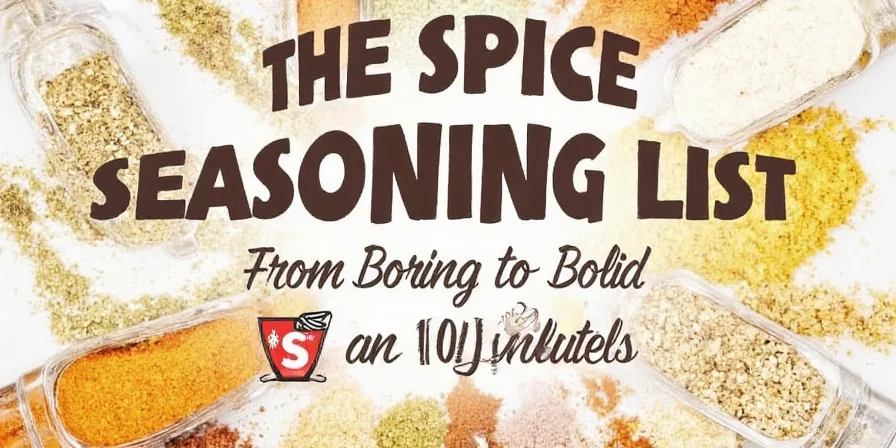
How to Store Spices So They Last 2x Longer
Proper storage doubles your spice shelf life. Most spices last 6-12 months when stored correctly (vs 3-6 months in typical kitchen conditions). Here's the practical method:
- The Freezer Test: Put spices in airtight containers in freezer (works for all dried spices)
- Light Protection: Store in dark cabinet or opaque containers (clear jars lose potency 3x faster)
- Moisture Control: Add silica packet to containers (prevents clumping)
- Freshness Check: Rub between fingers—if you can't smell strong aroma immediately, replace
- Whole vs. Ground: Buy whole spices when possible (peppercorns, cumin seeds) and grind as needed
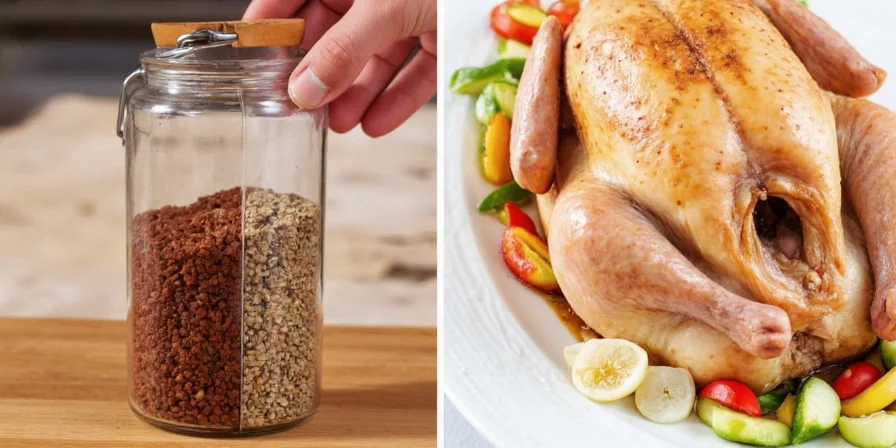
3 Simple Homemade Spice Blends Anyone Can Make
Store-bought blends contain fillers and stale spices. These three recipes use ingredients you probably already have:
1. All-Purpose Taco Seasoning (Makes 1/4 cup)
- 2 tbsp chili powder
- 1 tbsp cumin
- 1 tsp garlic powder
- 1 tsp onion powder
- 1/2 tsp paprika
- 1/4 tsp oregano
- 1/4 tsp salt
2. Simple Curry Powder (Makes 1/3 cup)
- 2 tbsp coriander
- 1 tbsp cumin
- 1 tsp turmeric
- 1/2 tsp ginger
- 1/4 tsp cinnamon
- 1/8 tsp cayenne (optional)
3. Easy Cajun Seasoning (Makes 1/4 cup)
- 1 tbsp paprika
- 1 tsp garlic powder
- 1 tsp onion powder
- 1/2 tsp thyme
- 1/2 tsp oregano
- 1/4 tsp cayenne
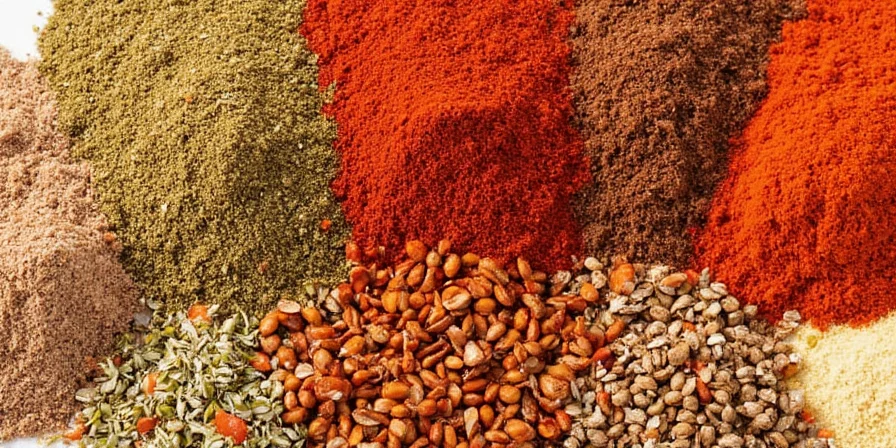
Spice Guide for Popular Cuisines
Don't buy entire spice sets for different cuisines. These basic combinations create authentic flavors with just 3-5 spices:
| Cuisine | Essential Spices | One Key Technique |
|---|---|---|
| Mexican | Cumin, Oregano, Chili Powder | Toast spices in dry pan first |
| Italian | Oregano, Basil, Garlic | Add dried herbs early in cooking |
| Indian | Cumin, Coriander, Turmeric | Fry spices in oil to release flavors |
| Middle Eastern | Cumin, Cinnamon, Allspice | Use freshly ground spices |
| Thai | Lemongrass, Galangal, Chili | Use fresh when possible |
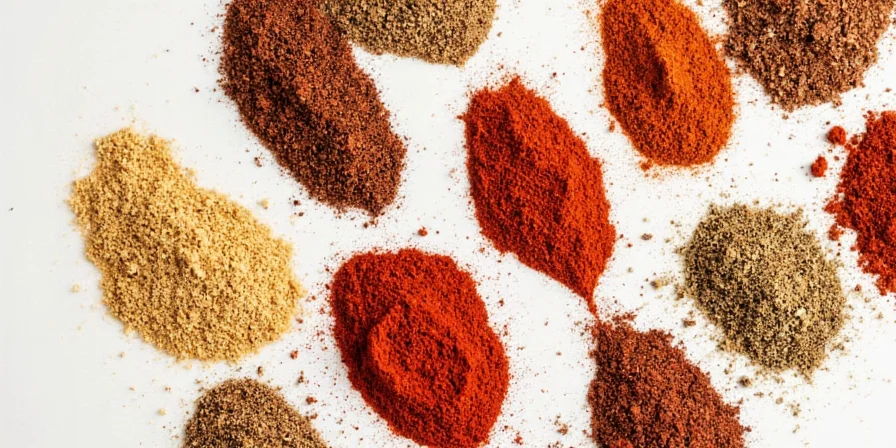
Your Next Steps to Better Cooking
Start with just three changes today: replace any spice you can't smell strongly, add dried herbs early in cooking, and toast whole spices before using. Within one week, your food will taste noticeably better. The most important spice isn't in your cabinet—it's the confidence to experiment. Keep these three blends ready in your pantry, and you'll never serve bland food again.
Ready to transform your cooking? Pick one spice blend to make tonight and notice the difference immediately.

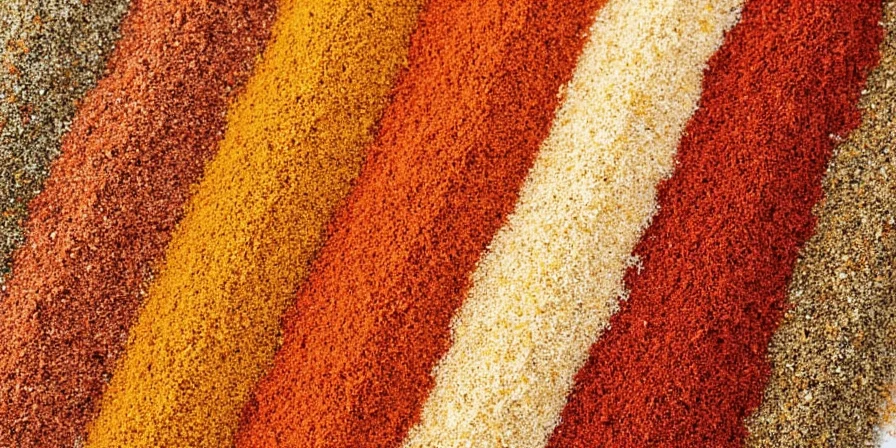









 浙公网安备
33010002000092号
浙公网安备
33010002000092号 浙B2-20120091-4
浙B2-20120091-4